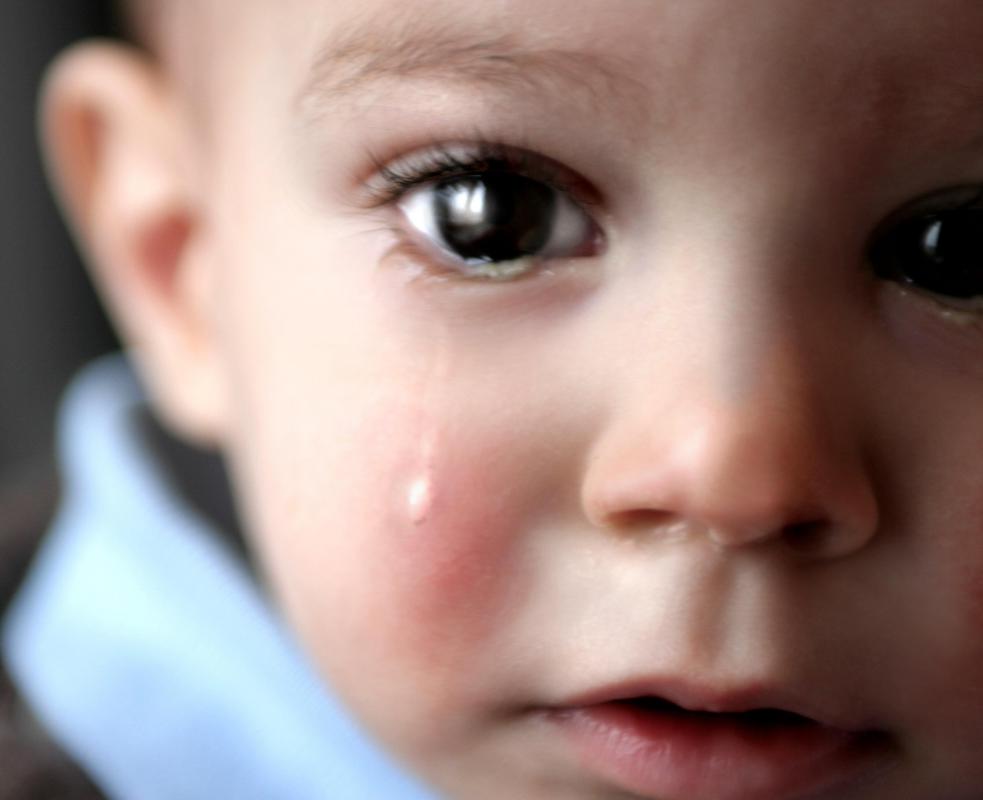At WiseGEEK, we're committed to delivering accurate, trustworthy information. Our expert-authored content is rigorously fact-checked and sourced from credible authorities. Discover how we uphold the highest standards in providing you with reliable knowledge.
What is the Tear Film?
The tear film is a layer of moisture which covers the eye. Technically, the tear film has three separate layers which work together to fulfill a number of functions on the surface of the eye. People who cannot produce a tear film or cannot keep this protective layer intact can experience a variety of problems, including dry eye, characterized by excessive dryness of the eyes which leads to irritation and vision problems.
The base layer of the tear film is the mucus layer, which helps the film adhere to the eye and ensures that it is evenly distributed. It is followed by an aqueous layer which is mostly water, and a lipid layer which seals the tear film to prevent loss of moisture. Together, these three layers protect the eye. Animals with eyes blink multiple times ever minute to refresh the tear film and keep it evenly distributed.

One important feature of this aspect of the eye is to create a totally smooth ocular surface. The cornea is actually slightly irregular, which would lead to distorted vision. The tear film increases visual clarity. This layer of material also inhibits infections, protects the eye from dust and other irritants by trapping and expressing them, and supplies necessary nutrients and oxygen to the cornea. It also acts to continuously moisturize the eye.

People who experience a tear film deficiency may notice that their eyes are dry and their vision is not clear. Sometimes, irritation can cause the production of excess tears, which leads to watery eyes. Treatments for dry eyes can include eye drops which replicate the tear film to keep the eyes comfortable as well as surgery for extreme cases. Drops are also sometimes needed for people with a thin tear film who wear contact lenses, as the eyes can dry out without the drops.

Problems with tear production and the maintenance of the protective film are usually identified and addressed by an ophthalmologist, a doctor who specializes in eye care. She or he can examine the patient and perform diagnostic tests to learn more about the nature of the problem. Some patients may be referred to a neurologist if there is a concern that the lack of tear production is related to a problem with one of the nerves which innervates the eye. Some problems are congenital, while others may be acquired in response to trauma, disease, or environmental and occupational exposure.
AS FEATURED ON:
AS FEATURED ON:
















Discussion Comments
@umbra21 - It's actually surprising how uncomfortable dry eyes can be, I find. When I was younger and spent a lot of time on airplanes I found this to be a problem, I guess because of lack of sleep combined with the recycled air in an aircraft and even in airports.
My eyes would actually become quite painful, I guess from irritation from blinking without enough of a tear film to protect them. They are really delicate and people are lucky that they don't have more problems with their eyes.
I found that using eye drops was the best solution for the problem, although I was happy to stop spending so much time in airports. I was very lucky never to get a serious infection but I could certainly see how it could happen.
I take a kind of birth control which said in the instructions that it might make wearing contacts uncomfortable and for a while I thought that I simply couldn't wear contacts with this birth control.
I did find them to be more uncomfortable to wear, as though I could feel them in there rather than the weightless feel that they usually have, so I resigned myself to only wearing glasses.
Then I mentioned this to a doctor and they informed me that the only reason this was happening is that the medication tends to dry out the eye a little bit and a few tear drops would fix it easily.
It was actually a little embarrassing that I hadn't realized that was the problem, but it did fix them right up and now I can wear contacts whenever I want without discomfort.
Post your comments